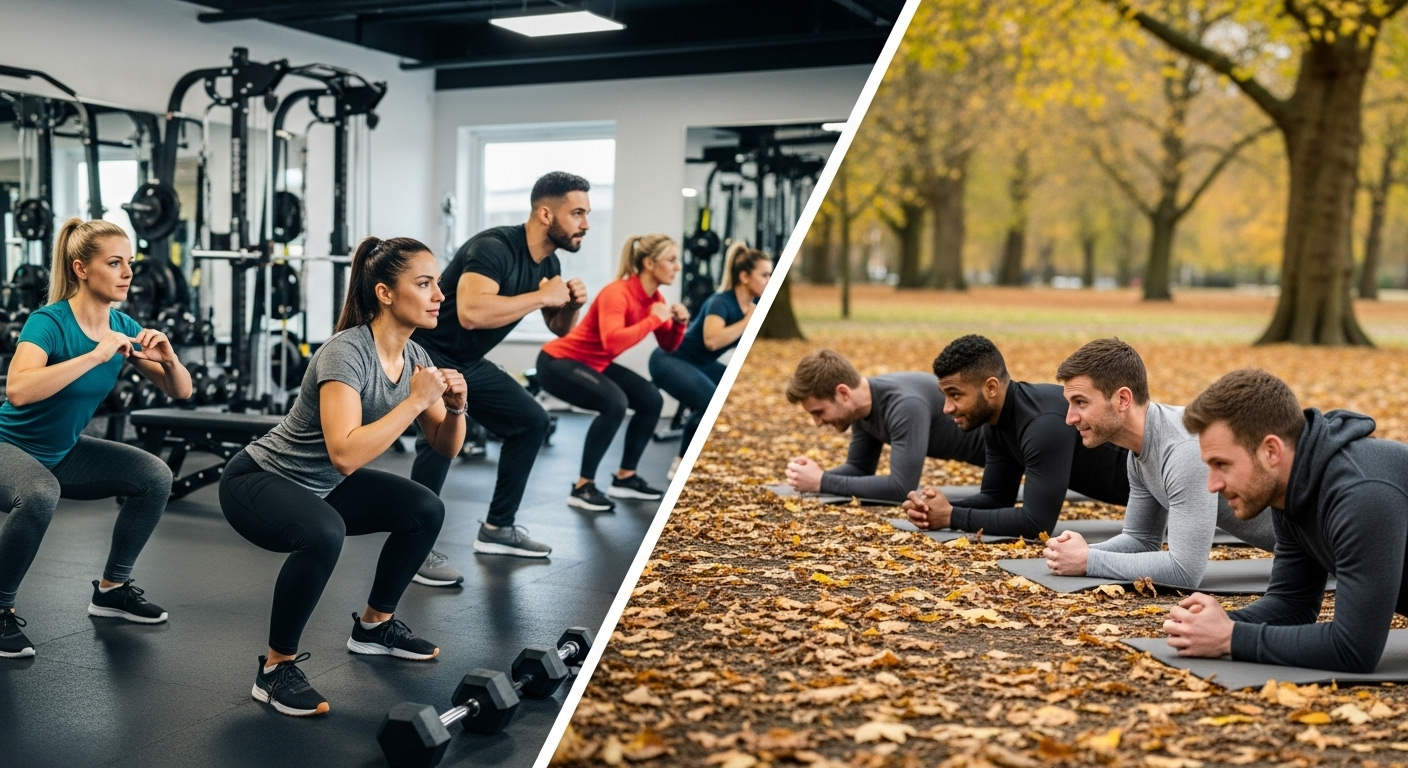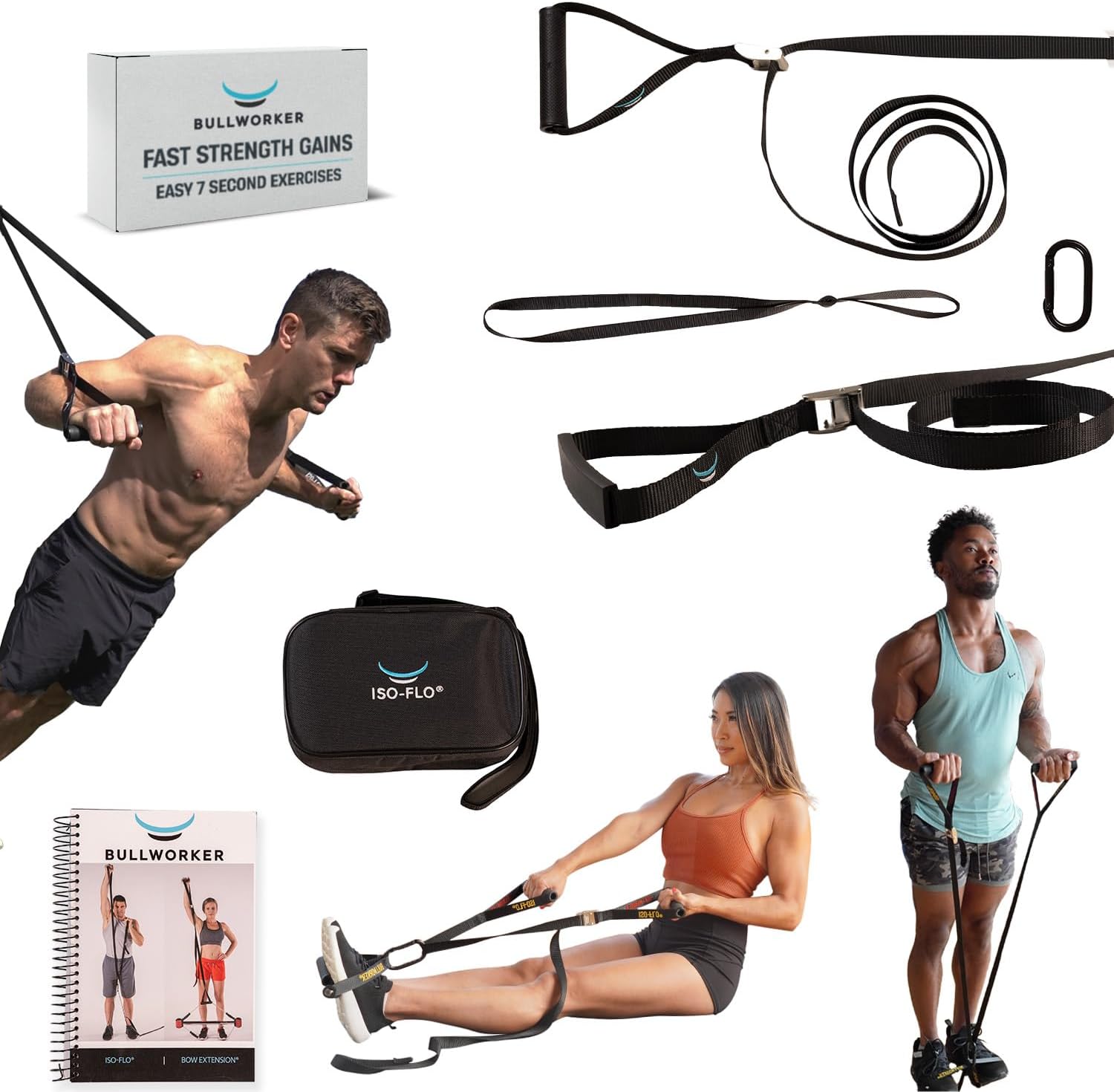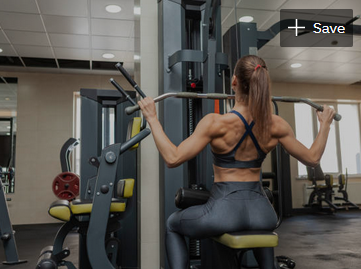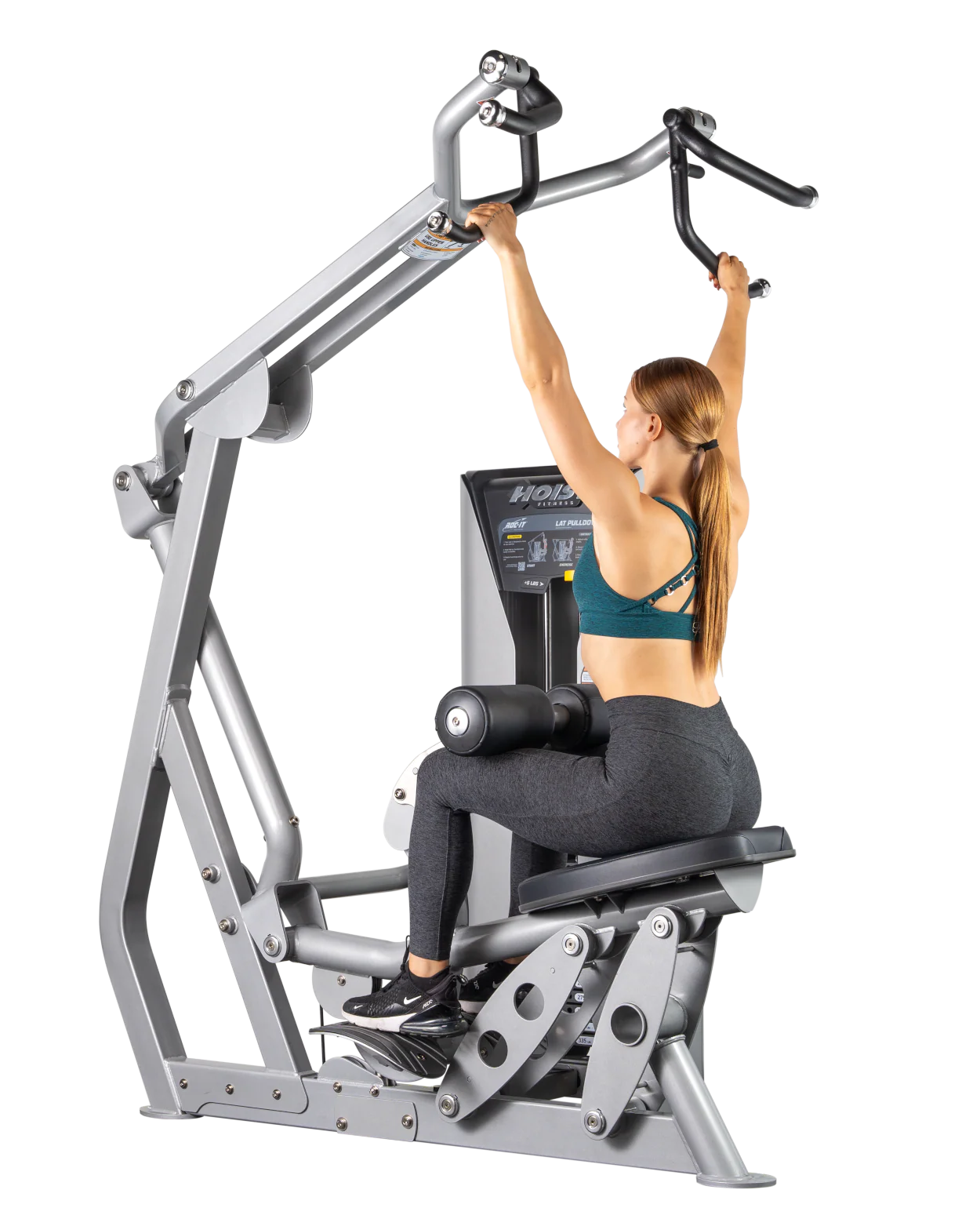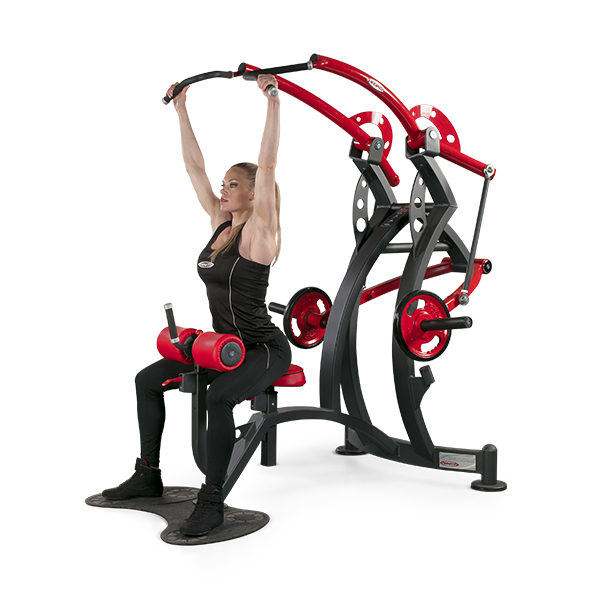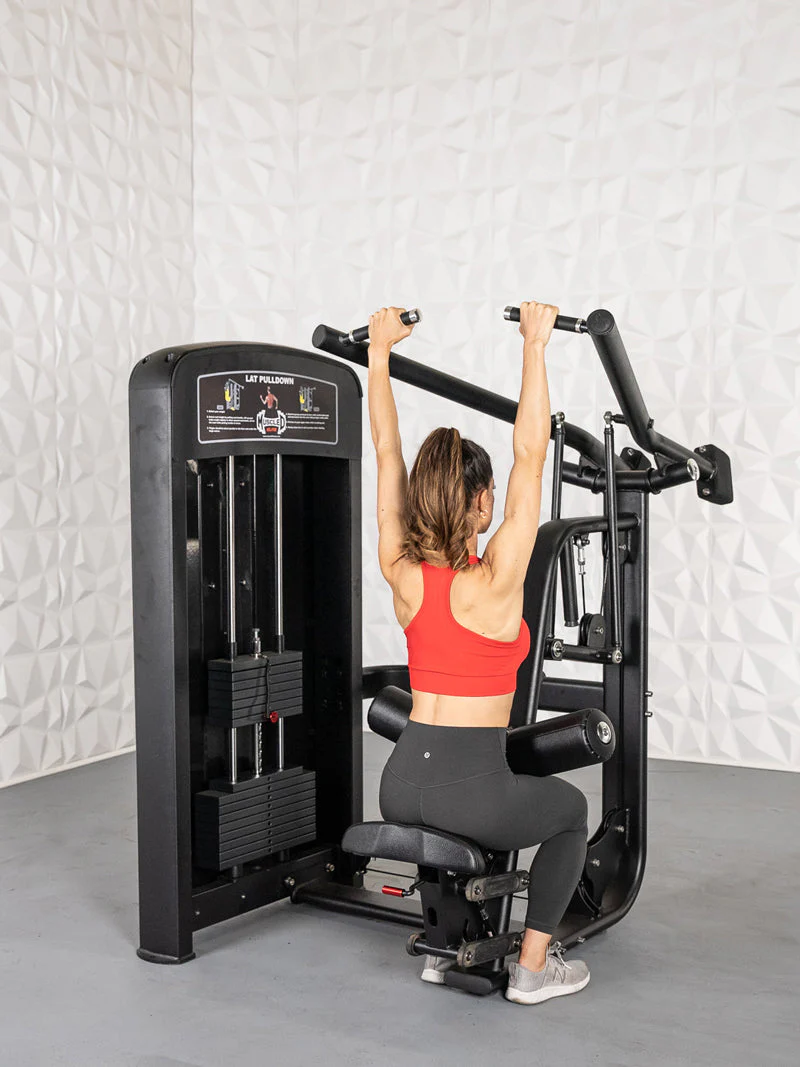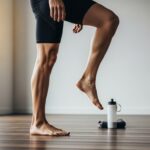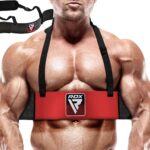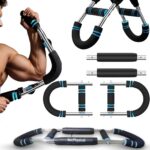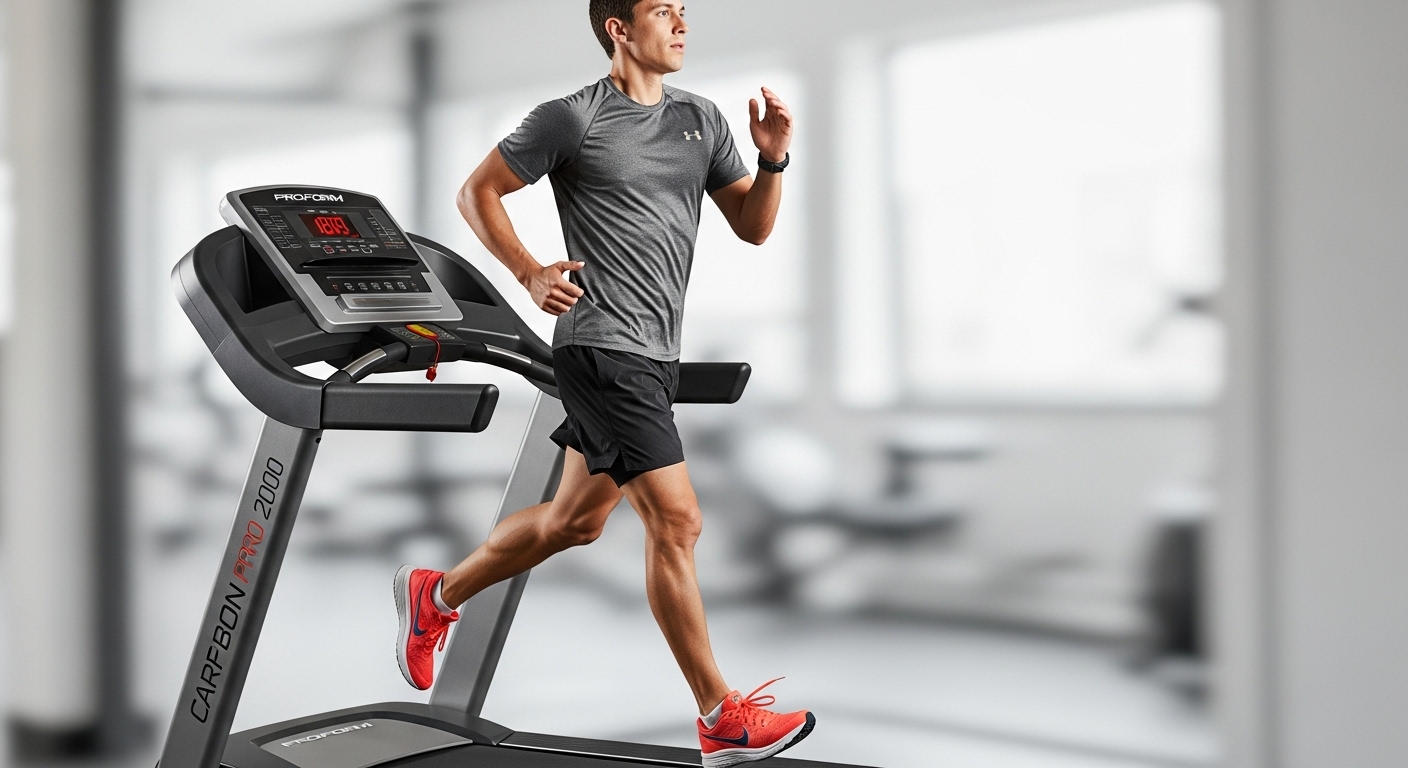Lower back pain affects over 2.5 million people in the UK annually, according to NHS statistics, with many cases stemming from weak core stability and poor lower body strength. The solution lies not in isolated exercises, but in understanding how your legs and core work as an integrated powerhouse to support every movement you make throughout your day.
This comprehensive guide reveals evidence-based strategies for building functional strength that translates to real-world benefits—from carrying shopping up flights of stairs to maintaining energy during long work days. You’ll discover adaptable workouts designed specifically for British lifestyles, whether you’re training in a cramped London flat, a home gym in Manchester, or outdoors in the unpredictable UK weather.
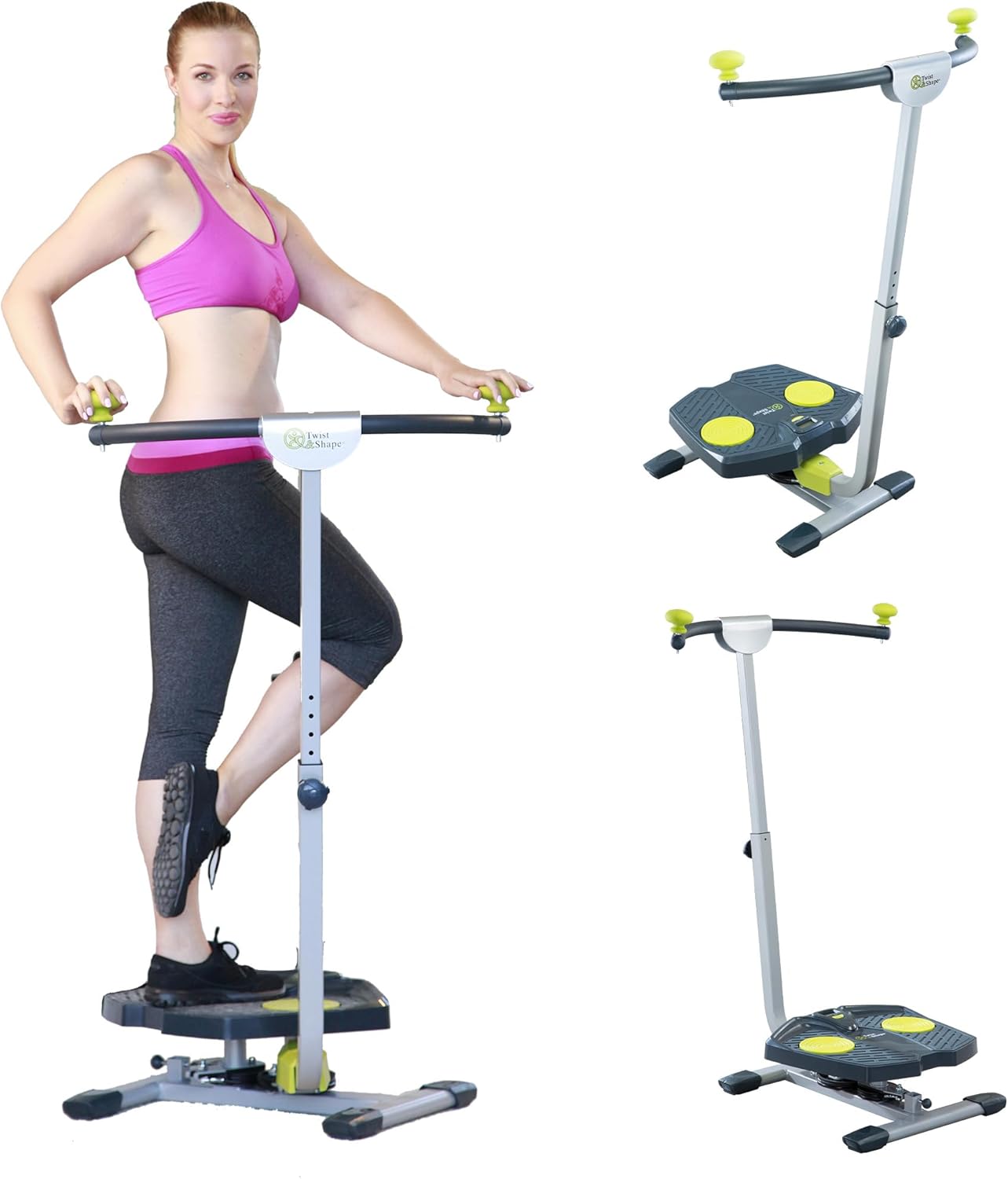
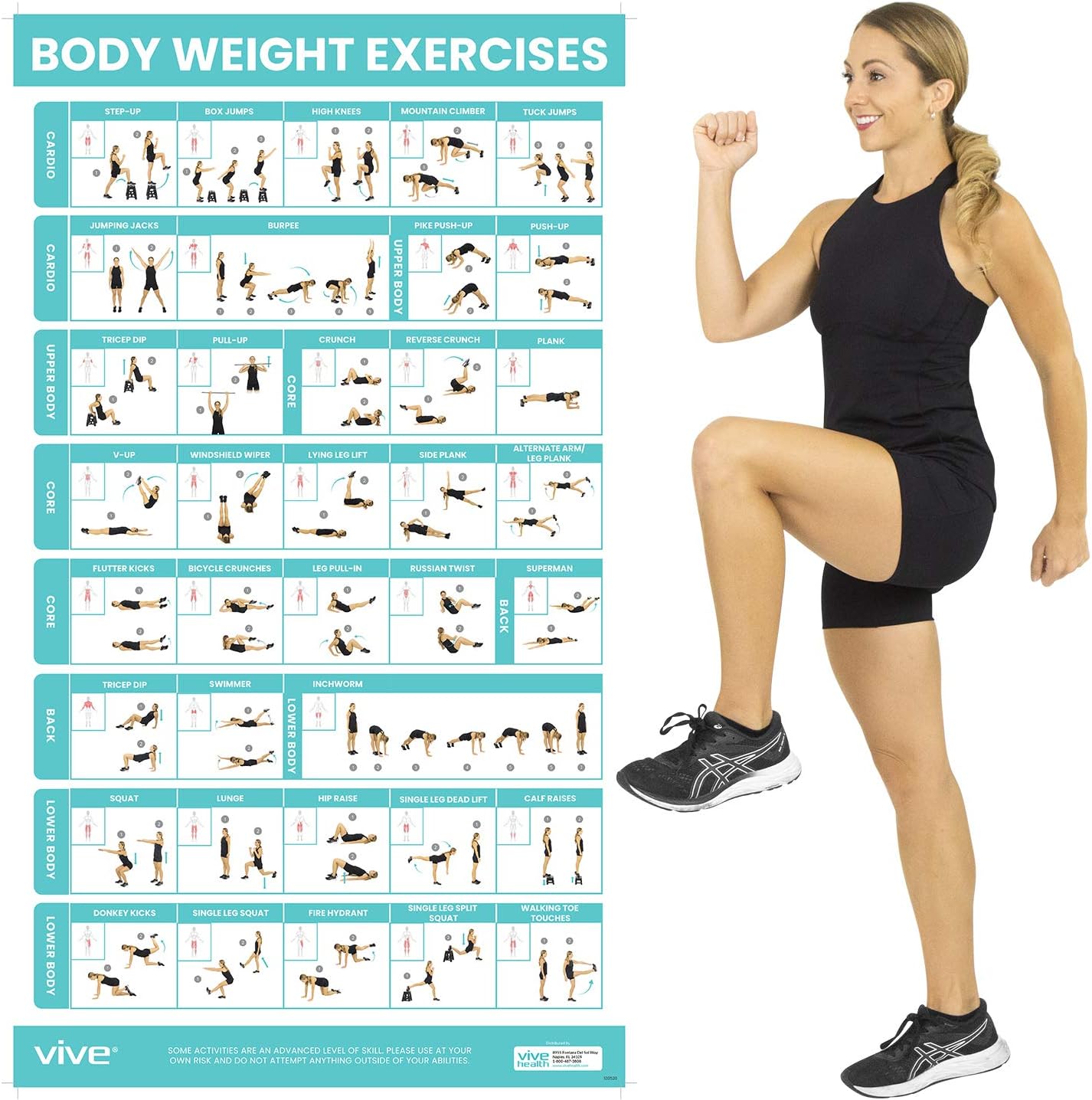
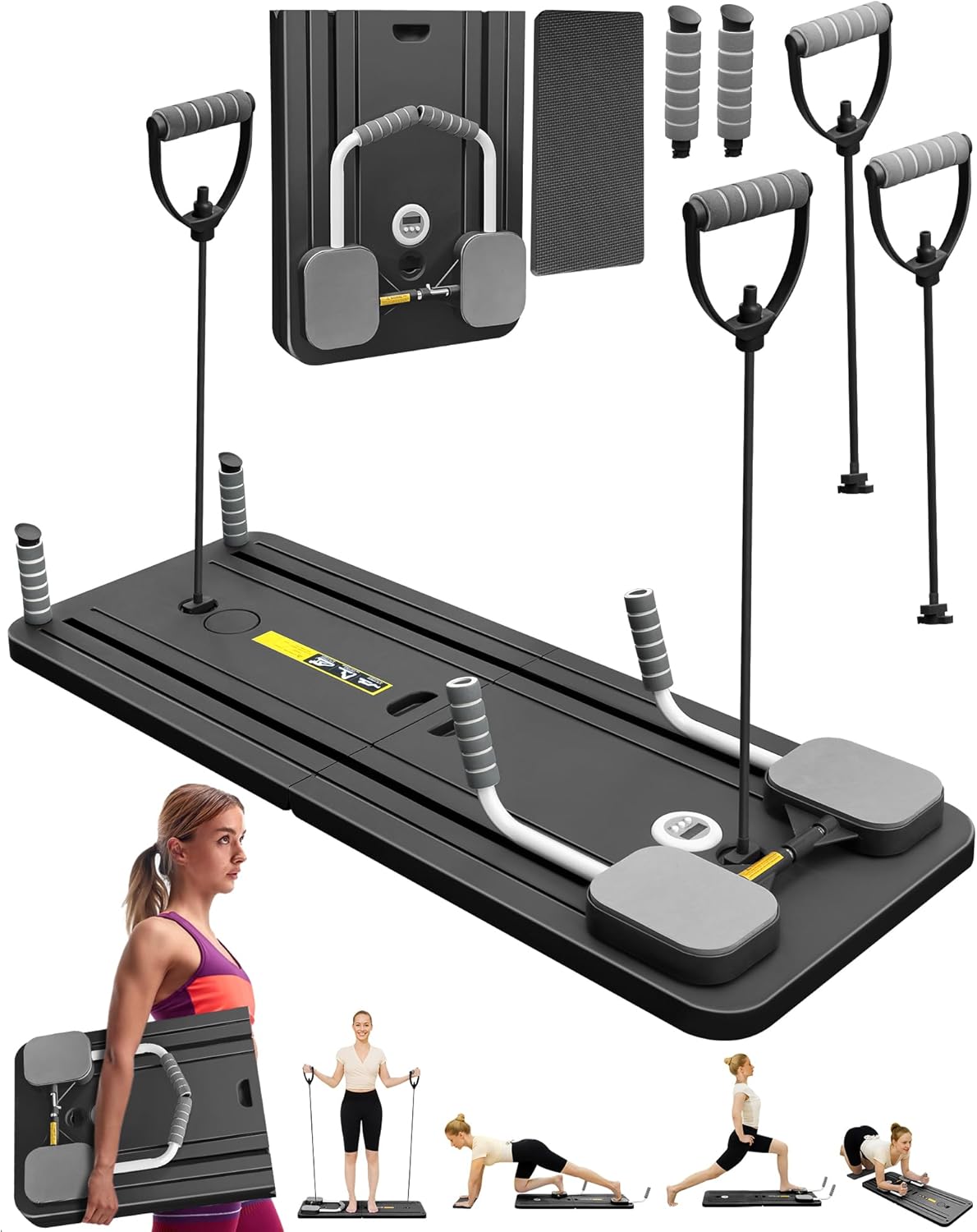
The Science Behind Leg and Core Integration: Your Body’s Foundation
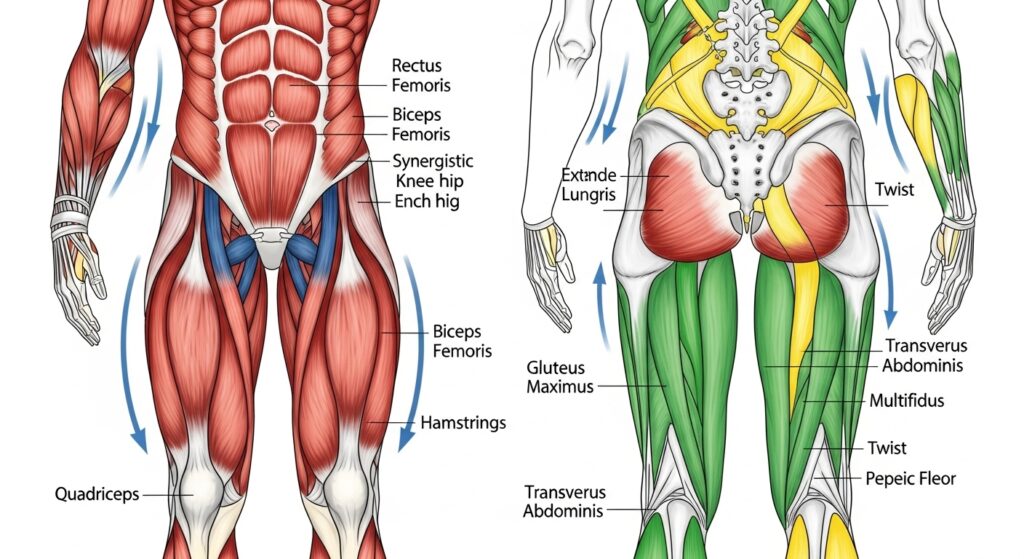
Your legs and core don’t operate independently—they form an interconnected system that powers every functional movement. The quadriceps, hamstrings, and glutes generate force, while your deep core stabilizers (including the transverse abdominis, multifidus, and pelvic floor muscles) create the stable platform from which that force can be efficiently transferred.
Recent research published in the Journal of Strength and Conditioning Research demonstrates that compound movements targeting both regions simultaneously produce 23% greater strength gains compared to isolated training approaches. This integration becomes crucial when you consider that most daily activities—climbing stairs, lifting objects, or even standing from a seated position—require coordinated leg and core activation.
For UK adults spending an average of 9.5 hours daily in sedentary positions, this integrated approach addresses the root cause of movement dysfunction rather than merely treating symptoms.
Assessment: Evaluate Your Starting Point
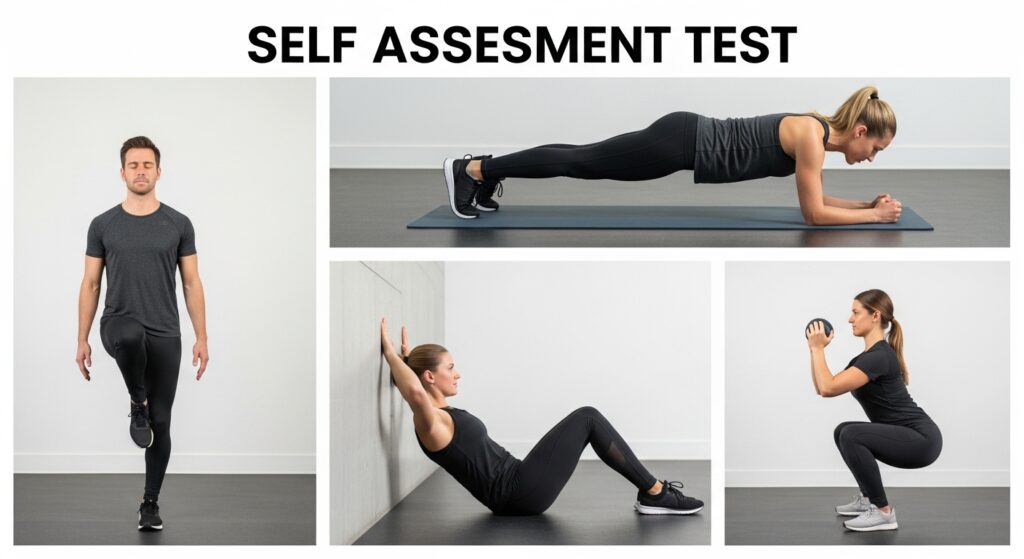
Before embarking on any training program, honest self-assessment prevents injury and ensures appropriate progression. These four simple tests reveal your current functional capacity:
Single-Leg Balance Test: Stand on one foot with eyes closed for 30 seconds. Inability to maintain stability indicates weak proprioception and core control, common issues affecting over 40% of UK adults over 35.
Plank Hold Assessment: Maintain proper plank position. Less than 60 seconds suggests significant core weakness requiring foundational work before advancing to complex movements.
Wall Sit Evaluation: Hold with thighs parallel to the floor. Inability to sustain 45 seconds reveals quadriceps weakness and poor muscular endurance.
Squat Mobility Screen: Perform bodyweight squats with heels flat and knees tracking over toes. Compensation patterns indicate mobility restrictions requiring targeted intervention.
These assessments create your baseline and inform appropriate exercise selection throughout your journey.
Equipment Guide: From Minimal to Maximal Setups
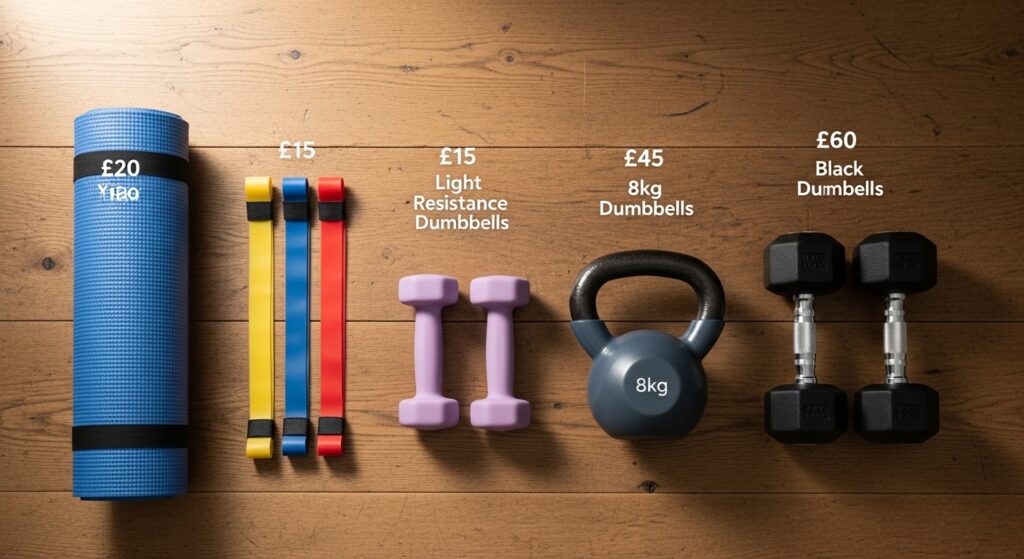
Effective leg and core training doesn’t require expensive equipment or large spaces—crucial considerations for UK households where 40% of adults cite cost and 35% cite space as primary exercise barriers.
Bodyweight Foundation (£0 investment): Your body provides all resistance needed for significant strength development. Squats, lunges, planks, and their variations create comprehensive training stimulus suitable for beginners through intermediate levels.
Minimal Equipment Essentials (£30-60 investment): Resistance bands offer variable resistance across movement ranges, while a single kettlebell provides loading options for advanced progressions. These tools fit easily in most UK homes and create gym-quality workouts.
Complete Home Setup (£150-300 investment): Adding adjustable dumbbells and a stability ball expands exercise variety significantly. This investment pays for itself within six months compared to average UK gym memberships (£41 monthly).
For outdoor training—particularly valuable during Britain’s pleasant summer months—weather-resistant equipment ensures consistency regardless of conditions.
The Complete Progressive Training System
Foundation Phase: Weeks 1-4
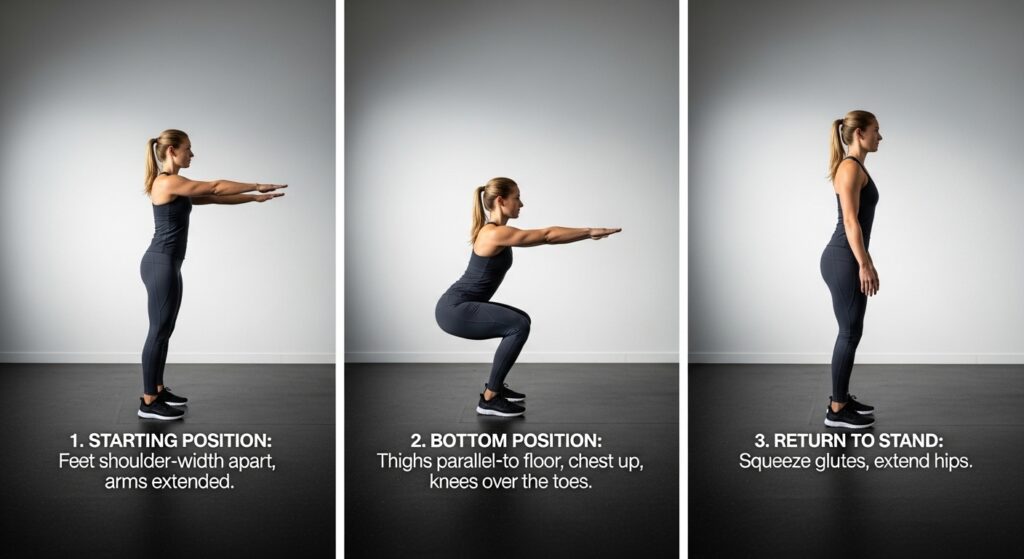
This phase establishes movement patterns and builds foundational strength through bodyweight exercises performed three times weekly. Each session requires 30-45 minutes, fitting easily around typical UK work schedules.
Workout Structure:
- Bodyweight Squats: 3 sets of 8-15 repetitions
- Modified Planks: 3 holds of 15-45 seconds
- Glute Bridges: 3 sets of 10-20 repetitions
- Wall Sits: 3 holds of 15-45 seconds
Progress occurs through increased repetitions, longer holds, or improved form quality rather than external loading. This approach builds confidence while developing the neuromuscular coordination essential for advanced movements.
UK-Specific Adaptations: These exercises require minimal space (2×2 meters) and produce minimal noise—perfect for flats with thin walls or early morning sessions before work commutes.
Development Phase: Weeks 5-8
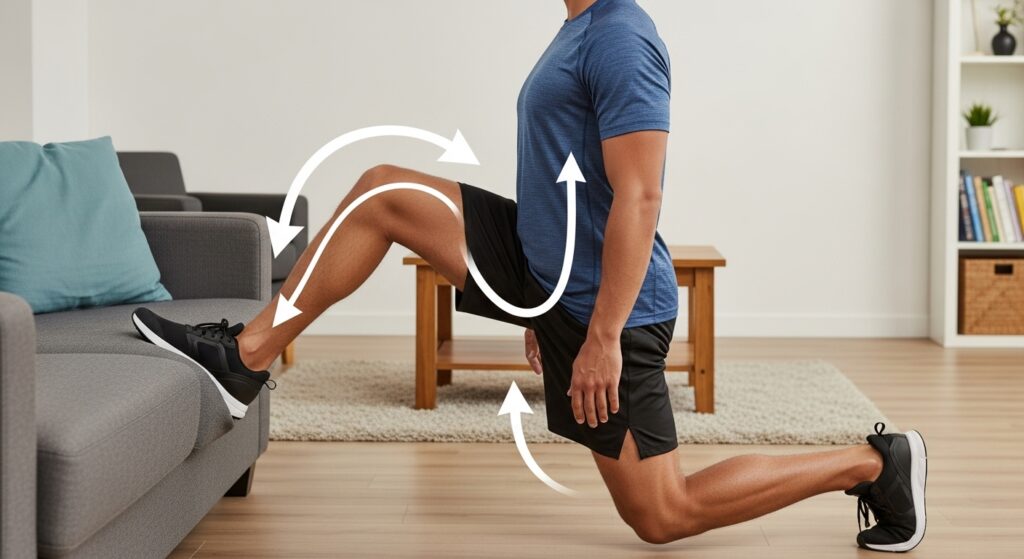
Intensity increases through exercise complexity and loading options. Training frequency advances to four sessions weekly with varied focuses—strength, endurance, and movement quality days.
Advanced Movement Patterns:
- Bulgarian Split Squats: 3 sets of 6-12 per leg
- Dead Bug Core Series: 3 sets of 8-10 per side
- Lateral Lunges: 3 sets of 8-15 per direction
- Plank Variations with Limb Movement: 3 sets of 30-60 seconds
External loading through household items (water bottles, shopping bags) or minimal equipment creates progressive overload. According to research from the American Council on Exercise, this progression strategy produces comparable results to traditional gym-based training.
Performance Phase: Weeks 9-12
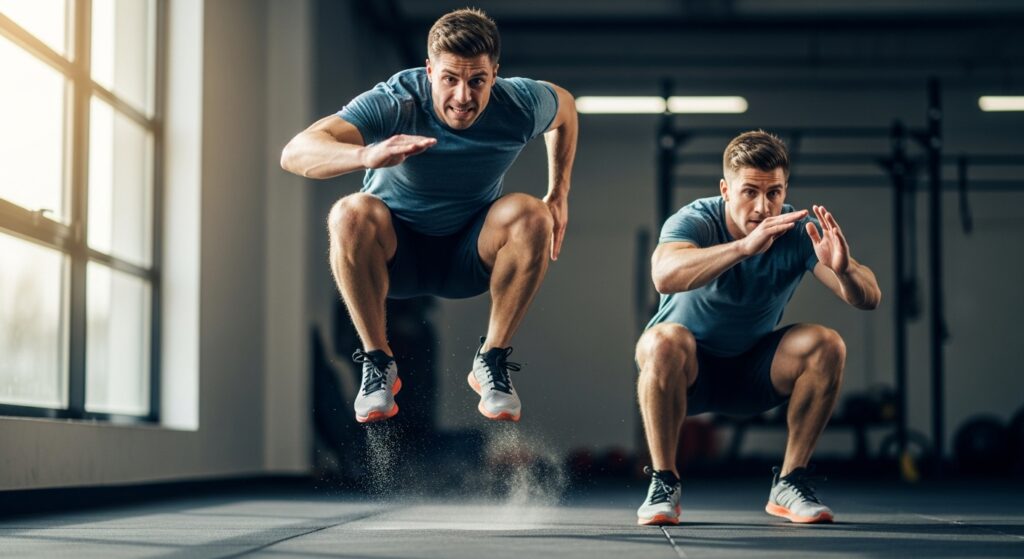
Advanced practitioners integrate power development and sport-specific movements. Five weekly sessions with periodized intensity maximize adaptation while preventing overreaching.
Complex Movement Integration:
- Single-Leg Romanian Deadlifts: 3 sets of 5-8 per leg
- Plyometric Jump Squats: 4 sets of 3-6 repetitions
- Loaded Carries: 3 sets of 20-40 meters
- Advanced Core Stability Challenges: 3 sets of 30-90 seconds
This phase prepares participants for integration with popular UK activities including football, rugby, cycling, and hiking—sports requiring significant leg and core coordination.
Nutrition Strategies for British Lifestyles

Proper nutrition amplifies training adaptations while fitting seamlessly into British eating patterns. Focus on readily available, culturally appropriate foods rather than expensive supplements or exotic ingredients.
Pre-Workout Fueling (30-60 minutes before): Combine easily digestible carbohydrates with minimal protein. Traditional options include porridge with banana, toast with honey, or tea with biscuits—familiar foods that provide sustained energy without digestive discomfort.
Post-Workout Recovery (within 2 hours): Prioritize protein synthesis through complete protein sources. British staples like eggs, dairy products, lean meats, or beans provide essential amino acids for muscle repair and adaptation.
Hydration Considerations: Britain’s temperate climate reduces extreme fluid requirements, but consistent intake remains crucial. Tea consumption—averaging 3-4 cups daily for most Britons—contributes significantly to fluid intake while providing beneficial antioxidants.
Research from the British Journal of Sports Medicine confirms that whole food approaches produce superior long-term adherence compared to restrictive supplement-dependent strategies.
Common Mistakes and Solutions
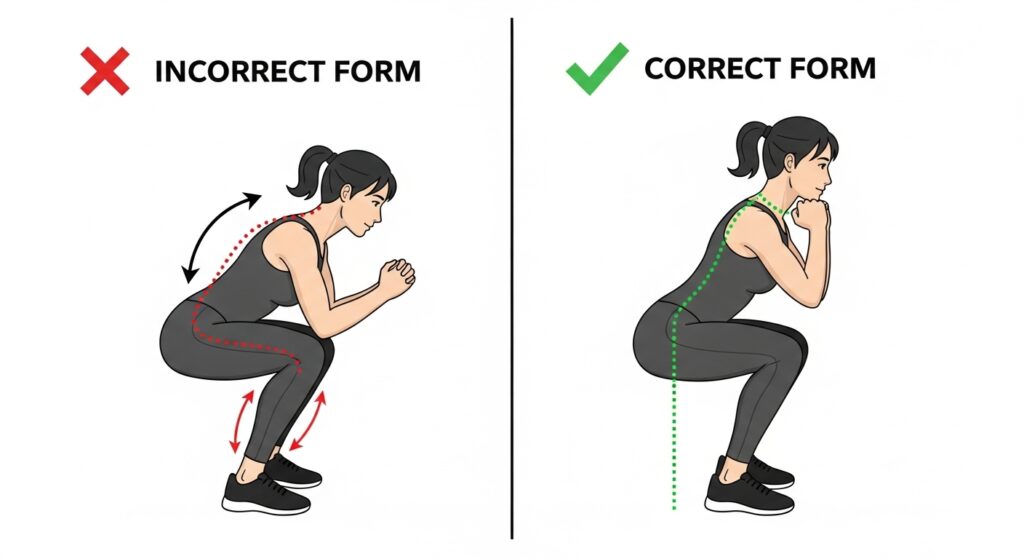
Even well-intentioned exercisers make predictable errors that limit progress or increase injury risk. Recognition and correction of these patterns accelerates improvement while maintaining safety.
Form Deterioration Under Fatigue: Maintaining technique becomes challenging as muscles tire. Reduce repetitions or intensity rather than accepting poor movement patterns. Quality always supersedes quantity in effective training.
Progression Aggression: British culture often emphasizes “getting on with it,” leading to excessive advancement rates. Sustainable progress occurs through 5-10% weekly increases in volume or intensity—not dramatic jumps that overwhelm recovery capacity.
Weather-Related Inconsistency: Britain’s unpredictable climate disrupts outdoor training plans. Develop both indoor and outdoor exercise options, ensuring consistency regardless of conditions. Home-based alternatives prevent momentum loss during extended poor weather periods.
Seasonal Motivation Fluctuations: Limited daylight during British winters affects mood and motivation for 65% of the population. Schedule training during natural light hours when possible, or invest in bright lighting for indoor sessions.
Measuring Your Progress
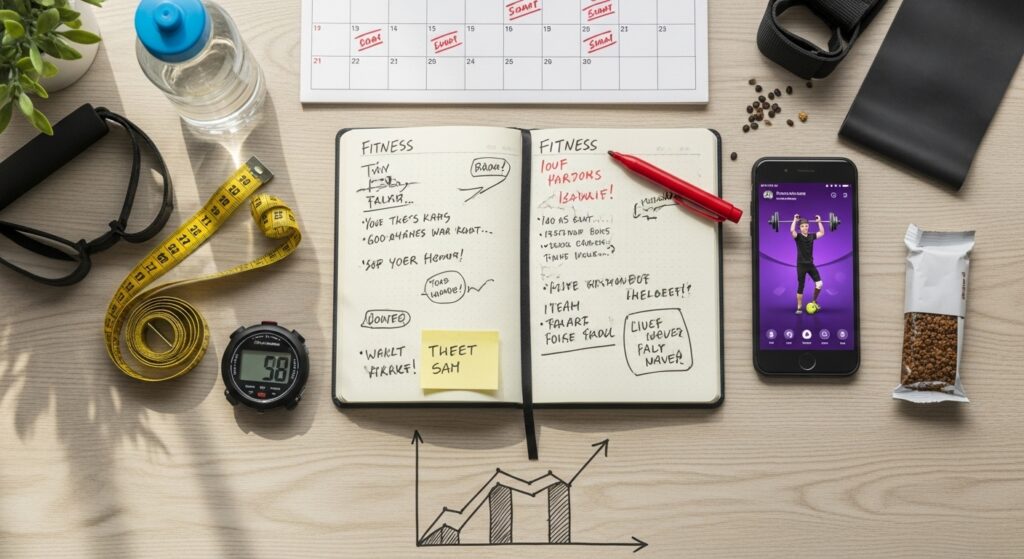
Objective measurement prevents guesswork and maintains motivation during challenging periods. Multiple assessment methods provide comprehensive progress evaluation beyond simple weight or appearance changes.
Strength Benchmarks: Track repetition increases in core exercises. Progressing from 8 to 15 quality squats represents 87% strength improvement—significant adaptation often overlooked when focusing solely on appearance.
Endurance Markers: Monitor plank hold duration weekly. Improvements from 30 to 90 seconds indicate substantial core stability enhancement with practical applications to daily activities.
Functional Assessments: Evaluate real-world improvements through daily activity ease. Climbing stairs without breathlessness, lifting heavy objects without back strain, or maintaining energy throughout long work days represent meaningful progress markers.
Recovery Quality: Sleep quality, morning stiffness, and general energy levels often improve before visible physical changes occur. These adaptations indicate positive physiological responses worth celebrating.
Document progress through simple smartphone photos taken weekly under consistent lighting conditions. Visual changes occur gradually, making comparison photos valuable for recognizing improvements invisible in daily mirrors.
Advanced Strategies and Long-Term Success
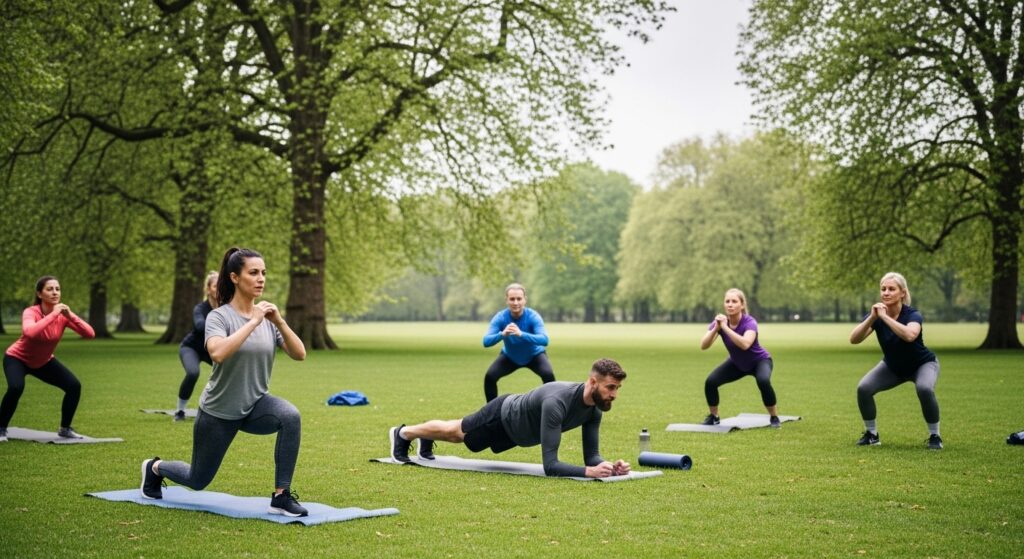
Sustained progress requires periodic program evolution and integration with broader lifestyle factors. Advanced practitioners develop systems supporting long-term adherence rather than relying solely on motivation.
Periodization Principles: Alternate high-intensity phases with recovery periods, preventing adaptation plateaus while managing cumulative fatigue. British weather patterns naturally support this approach—intense indoor training during winter months, outdoor activity emphasis during summer.
Community Integration: According to research from Sport England, individuals exercising with others maintain consistency rates 40% higher than solo practitioners. Seek local fitness groups, online communities, or training partners to enhance accountability and enjoyment.
Technology Integration: Smartphone apps and wearable devices provide convenient progress tracking and workout guidance. However, technology should supplement rather than replace fundamental movement knowledge and body awareness.
Professional Guidance: Consider consultation with qualified exercise professionals during progression plateaus or when integrating training with specific sport requirements. Investment in expert guidance often prevents injuries and accelerates long-term results.
Your Path Forward
Effective leg and core training transforms more than physical appearance—it creates the foundation for lifelong movement quality and independence. This comprehensive system provides the structure and knowledge necessary for sustainable progress, regardless of your starting point or ultimate goals.
Begin with honest self-assessment, choose appropriate equipment for your situation, and commit to consistent implementation of progressive training principles. Remember that small, consistent actions compound into remarkable results over time.
Your strongest, most resilient self awaits. The journey begins with your first movement.


Jodie Carter is a REPS Level 3 certified personal trainer with over 8 years of experience in strength training and home gym design. She holds qualifications in exercise physiology and has helped over 500 clients design effective home workout spaces. Jodie regularly contributes to UK fitness publications and maintains continuing education in the latest exercise science research.
Disclosure: This article contains affiliate links to products I personally use and recommend. When you purchase through these links, I may earn a small commission at no additional cost to you. All recommendations are based on my genuine experience and testing—I only recommend products I actually use in my own home.

